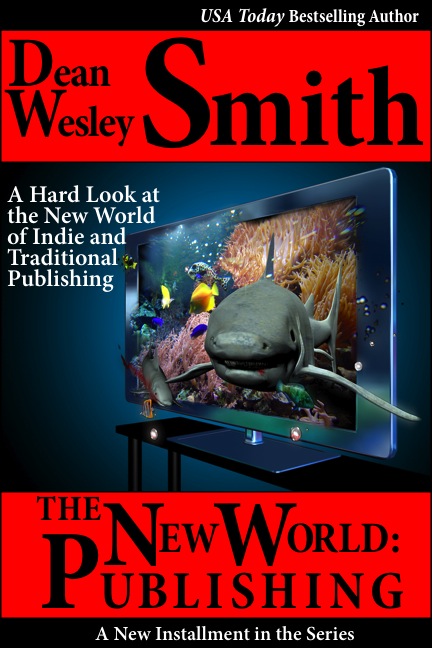What About Those Numbers?
What About Those Numbers?

Over at Author Earnings, Hugh Howey and Data Guy released the July sampling and talked about it. Worth the read, folks.
http://authorearnings.com/july-2014-author-earnings-report/
The rest of this post is an expanded response to a question on my daily blog about what I thought about those numbers.
It’s hard to argue with numbers like that, even though they are taken from only one bookstore. Yanking a sampling like that only once is an interesting thing, but having the numbers remain consistent over three samples spread six months apart is stunning and is giving the data more credibility.
The idea that traditional publishing is the “only way” to publishing heaven is long gone for most writers. Only those lost in myths or so set on having some sort of “anointment” or flat too lazy or too scared to do it themselves are left believing New York is the only way. And their voices are getting very shrill.
Especially in the face of this kind of data.
A lot of writers I know are hybrid writers, going both ways, which is also proving dangerous for traditional publishers, since a writer doing that has clear, clear, scary-clear comparisons between a book going traditional and a book going indie. And in short order, as I have been hearing, the traditional-published books are flat losing the comparison between indie and traditional.
The huge myth that indie writers hold that they can’t get their books into bookstores is the last hope of traditional publishers. And that myth is getting pounded on by more people than just me and Kris. When that myth vanishes, traditional publishers will be faced with some issues of what they can say they can do better.
Traditional publishers do a lot of shouting into the wind on different things they can do better. They claim better editing, but any indie writer knows we can find our own editors just fine. And little or no editing is done anymore in a traditional house beyond making a writer change a book to better fit a line of books.
Traditional publishers claim better copyediting, but that’s just a laugh and indie writers find great copyeditors. (And many of us do much, much better covers and blurbs as well.)
Traditional publishers claim support in promotion, but every hybrid writer knows that a publisher does no promotion anymore for anyone other than mega-bestsellers. They expect the writers to do it, so why do it for a part of 25% of net when you can do the same thing for 70% of gross. Even the most math-dead indie writers got that advantage.
And if you want readers? Well, go ahead and try to get readers with your electronic edition priced at $11.99. Indie writers can sell electronic books at $4.99 to $6.99, do sales to get even more readers, and give readers real value.
And that’s not even talking about contracts. Traditional publishers won’t and don’t talk about contracts. Period. Traditional publishers know they are flat screwing writers in the contracts, buying all rights, taking rights they will never need, controlling writers output into the future.
The old days of publishers being nice and being partners with writers is long gone. If you don’t believe me, just take a standard publishing contract to a regular attorney and watch their face go white. In any other industry, a standard 2014 midlist writer contract would be considered a scam contract and no reasonable attorney would ever let you sign it.
Unless you are getting offered at least a six figure advance (getting rare these days) you have ZERO clout in contract negotiations. And as the stock report for one major company came out and said, agents work for the publishers. Agents are slipping faster than traditional publishers and will take a ton of writers’ money with them when they go down.
A traditional-published writer will sell a book for all rights for the life of the contract for a small advance. And will never control or see that book again in any reality.
And the writers still under the traditional spell seem happy about this. Color me puzzled. But I have a lot of friends who are still signing those contracts.
(However, in all fairness, I signed about 40 media book contracts where I got nothing but an advance to write Star Trek, Spider-Man, Men in Black, and so on. And I signed a bunch of ghost-writing contracts for all rights as well. So I wrote books for only advances, just as modern traditional writers are doing. But I got better. And I never once did that for an original novel.)
So back to the original question… What do I think of Hugh and Data Guy’s numbers?
I think the reports take a ton of work, I think those two humans are doing the work of the saints for no money, and I think those numbers should send a chill through every boardroom in publishing.
Traditional publishing, at least the big publishers (and their smaller group of older medium-sized publishers) have decided that the only way to come out ahead in this is to make sure the old way of doing things remains. Therefore, because Amazon opened the barn door to let the poor writers escape their cages, Amazon is bad.
The Author Earnings Reports shine a light on what is really happening and that light is amazing for us indie writers and scary as hell to traditional publishers.
Think of traditional publishers this way:
They are holding buggy whips and are chasing those new-fangled automobiles down the road shouting “Get out of my world! I’ve been here longer than you!” While the drivers of the cars can’t hear them because they have their new music systems turned up and flat don’t care to look in the rearview mirror.